The Care, Feeding, and Training of a Snipe Skipper
By Nikki Bruno Before any of you skippers think, 'I don't need to be trained!' kindly tell your ego 'down' and give it a cookie so it stays occupied for now. Pietro recently wrote an article bearing a very similar name last month, and I thought I'd piggyback on his idea and give you all a crew's perspective on how we can best support our skippers. Especially for us crews that don't have a regular partner, it's important for us to be able to adapt, as well as communicate what works best for our individual style and experience. As we all know, the skippers of the general sailing community get most of the recognition, but that doesn't mean they must to do most of the work. With dinghy sailing especially, we must function as a true partnership, not just as a team. Just like any significant relationship in our lives, this takes some effort. Unlike most significant relationships, many of us have only a few hours to go from "Hi, I'm Nikki!" to a smooth race and successful finish. Here are some ways for a crew to make it easier. (Photo courtesy of John Payne) ...
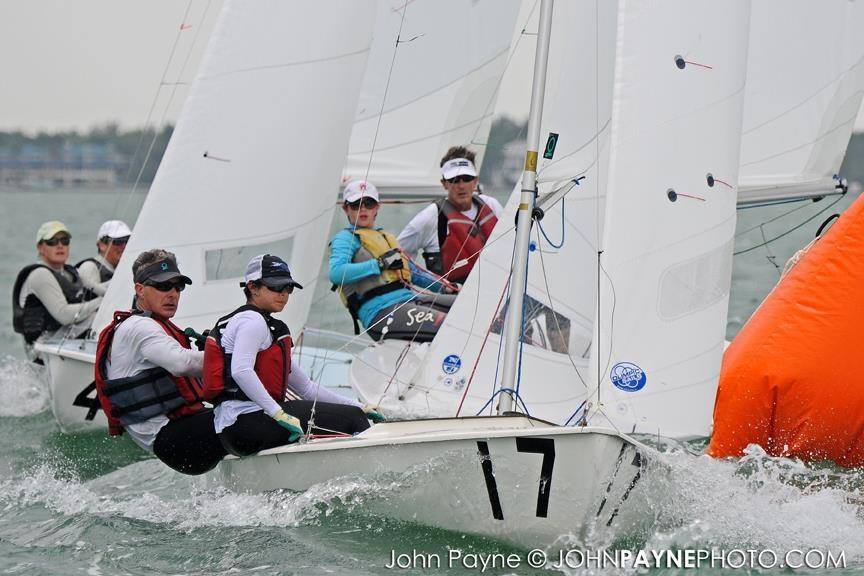

By Nikki Bruno
Before any of you skippers think, ‘I don’t need to be trained!’ kindly tell your ego ‘down’ and give it a cookie so it stays occupied for now.
Pietro recently wrote an article bearing a very similar name last month, and I thought I’d piggyback on his idea and give you all a crew’s perspective on how we can best support our skippers. Especially for us crews that don’t have a regular partner, it’s important for us to be able to adapt, as well as communicate what works best for our individual style and experience. As we all know, the skippers of the general sailing community get most of the recognition, but that doesn’t mean they must to do most of the work. With dinghy sailing especially, we must function as a true partnership, not just as a team. Just like any significant relationship in our lives, this takes some effort. Unlike most significant relationships, many of us have only a few hours to go from “Hi, I’m Nikki!” to a smooth race and successful finish. Here are some ways for a crew to make it easier.
(Photo courtesy of John Payne)
…
Take Care of Yourself
A sick, injured, or hung-over crew is about as useful as a semi-conscious manatee. Your skipper has done a lot of work to get ready for this regatta and s/he not only will be very disappointed that you can’t perform, s/he’ll probably cross you off the list for future regattas. Illness and injury happen and it certainly isn’t a deal breaker, but be sure to let your skipper know as soon as possible. Even better though is to hit the gym and stretch regularly, eat plenty of spinach, stay hydrated, and get enough sleep! Know your body – if your blood sugar tends to drop quickly while racing, you better stock up on granola bars and sport drinks. Don’t be afraid to munch during a leg if you need it – as long as it’s not distracting. And I know we’re all about having Serious Fun, but leave the rapid imbibement of Dark ‘n’ Stormies until the award ceremony!
Communicate
No amount of talent, fitness, and knowledge can make up for poor communication. If there’s one thing I want you to take away from this article, it’s that keeping quiet, making assumptions, and arguing are surefire ways to lose a race, and probably your skipper too.
Learn the Language
Every skipper has a way of giving orders. Ask for it to be defined, and if you think it could be confusing, ask for a modification. When s/he says “in” does it mean your body or the jib? Is it said clear enough? I can’t tell you how many times I’ve mistaken “trim” for “in” or vice versa because I just got a face-full of saltwater and didn’t hear. Is it a cunningham or a downhaul (which could sound like outhaul)? Don’t allow generalities such as “pop ‘it’ off” instead of the actual boat part, or just a boat part with no associated action (“Jib, jib, jib!!”). Does s/he speak in terms of color (“crank on the red line”) or function (“take out the wrinkle”)? Do you even know what color to crank when s/he asks you to take out the wrinkle?? Theoretically a crew should know these things based on context, but eliminating the need for abstract thought altogether is a lot more efficient. Ask yourself these kinds of questions, and then ask your skipper. If allowed, take notes on the deck so you can’t forget. Sharpies are your friend.
Set Clear Expectations
Ideally this is discussed before you even hit the water. Take a piece of paper (or word doc for the tree-friendly) and draw three columns. Label them ‘Trigger,’ ‘Skipper,’ and ‘Crew.’ Your triggers are the pivotal moments in the race and the other columns are where you determine who does what, and who looks out for what. With the variation of setups we have, what works on one skipper’s boat might not work on another’s. Some skippers prefer to play the vang or Augie equalizer themselves, while some expect the crew to know when. When you’re getting a line sight, who looks at the line and who looks at the compass? Who watches it during the race? At the start are you watching the clock or for barging leeward boats? After the start, who focuses on speed, angle, or finding a clear lane? Which one of you is better at reading shifts or waves? Which one of you can yell ‘starboard!’ louder? Delegating duties frees up the mind a bit and allows for more accuracy overall. Sharpies are still your friend.
Provide Useful Information
Useful information is specific, factual, objective, and frequent! “There’s a puff coming” is okay, “There’s a puff coming in about ten seconds” is good, “There’s a puff coming in about ten seconds and it knocked the boats ahead down a few degrees” is great. “There’s a shift, we should tack” is useless, unless you and your skipper have already determined you will make that call. Maybe s/he is purposely pinching and the boats ahead are therefore supposed to look like they’re down. “I don’t know what’s going on with those boats over there” is a lot more useful than giving information you’re unsure about, so don’t be afraid to admit it, but it’s still not very specific. “I think we’re slower and lower than the boats in the middle of the course but I’m not sure” is better because at least your skipper has somewhere to start looking to confirm. When sailing upwind, pay close attention to what’s going on fore and leeward, as well as aft and windward. When sailing downwind, pay close attention to everything behind you. Hopefully it’s the rest of the fleet!
Solicit Useful Information
Don’t even try to read your skipper’s mind. Ask what’s on it. “What do you think about ___ ?” “What do you want to do about ___?” “What’s the plan?” “How’s my jib trim?” “Where do you want my weight?” “Do you feel overpowered?” “What mark are we going to?” “When are we going to tack/jybe?” If you’re a novice sailor this is even more important because it helps you get into the skipper’s mindset and see what s/he sees as important, further cluing you into what you should look out for. This is also a subtle way to keep your skipper on track. S/he can’t tell you what the plan is if s/he hasn’t thought about it yet!
Debrief After Each Race
During the race is not the time to discuss what didn’t go well, both in terms of the race itself and how you felt about it. The only ‘feelings’ that matter during a race involve gravity, drag, and the wind on your skin. Ignore your burning muscles or offended ego. Instead, in between races and at the end of the day, work together to find where the sticky points were, but also be sure to praise what did go well! If you think your skipper is being too hard (or too easy!) on you, let it be known in a polite way. You’ll regret not fixing the issue much more than you’ll regret the issue itself.
Choose the Right Attitude
Let me start off with this – You have already chosen to participate in arguably one of the most complex and demanding sports in existence. You have willingly sacrificed your shins, palms, and, unless you have a very generous skipper, part of your wallet, in exchange for a t-shirt, semi-recognition and maybe a shiny plate. You are to be congratulated because you are a trooper and you should be damn proud of yourself. You wouldn’t be doing this if you didn’t love it to the bone – so make sure to act accordingly!
Be Proactively Helpful
Unless you’ve been told you’re on the ‘Princess Program,’ don’t be a princess. On the water, think ahead as much as possible. Know the plan well in advance of it’s execution. Off the water, do everything you can to help your skipper set up and break down. Go through a checklist of everything you need for the day. Throw away those granola bar wrappers. Ask, “What can I do?” whenever you find yourself idle. Offer help to the guy parked next to you too, who knows maybe you’ll find a skipper for that regatta you weren’t invited to yet. If it’s all under control then ask who wants you to get them a share of the keg! Remember to imbibe slowly.
Love to Practice
In an ideal world we’re all still in college and sailing five days a week. In the real world we usually only have the trek out to the course to practice. If you can get in more time than that, absolutely go for it. But if an hour is all you have, make the most of it. Ask to go through some tacks, jybes, and transitions. Don’t wear yourself out but don’t allow yourself to slack either. Work out the kinks before they become bird nests.
Stay Positive
This is a psychologically challenging sport. Even the calmest, coolest, most collected skippers I know speak exclusively in expletives as soon as the gun goes. Follow the q-tip rule: Quit Taking It Personally! People who are frustrated say silly things that they don’t really mean. Focus all your energy on making productive moves forward. Celebrate your successes and learn from your failures. Forgive immediately – yourself, your skipper, and that goon who didn’t give you enough room at the mark even though he really could have if he wasn’t such a goon. Nothing matters but the next moment, so make it work for you, not against you. Always be the best version of yourself.
Never Stop Learning
I’m going to admit, I had an ulterior motive regarding this article. I interviewed my skippers and sailor friends for their opinions because I wanted to learn from those I actually sail with about how I can be a better crew for them. The best way to learn is to teach others, so if you ever get the chance to share your knowledge, take full advantage of it. Take an honest look at yourself and decide what needs improvement – if you don’t know then ask your skipper! There is a plethora of books and websites dedicated to sailboat racing, so find one you like and read it. Then find another. Talk to every sailor you know and especially every one whose talent you admire. What I find most endearing about the Snipe class is the willingness of those at the top to teach those at the bottom everything they know, and then some. Take advantage of it.
Last but Never Least – Have Fun
Enthusiasm is contagious so do whatever you need to stay infected. A light heart relieves stress from all it touches. Go ahead – crack jokes, make faces, play games, and sing songs in between races, but only after you’ve debriefed of course! Put up your feet and bathe in the sunshine. Smile! Find joy in others’ company, and my personal favorite, get out on the floor and dance! And yes, now that the party has started, you can imbibe as rapidly as you like ☺
Nikki Bruno
—
I’d like to give a quick special thanks to Pete Commette, Arthur Blodgett, and Raul Rios for sharing their thoughts with me, along with my non-Sniper (yet) friends, and of course to all my skippers past, present, and future. I’m looking forward to another great year of sailing!
Comments for this post are closed


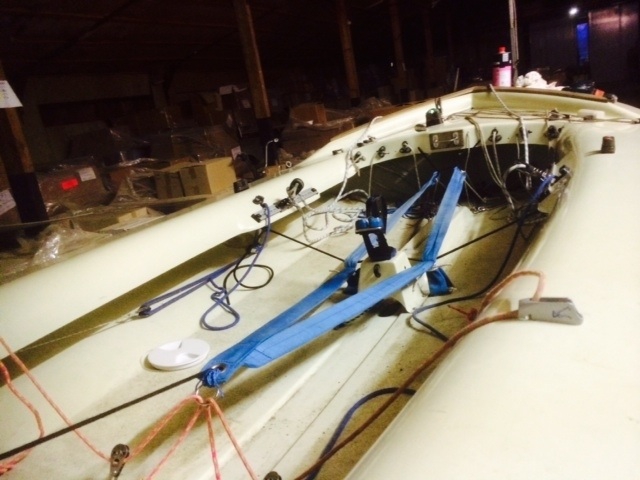



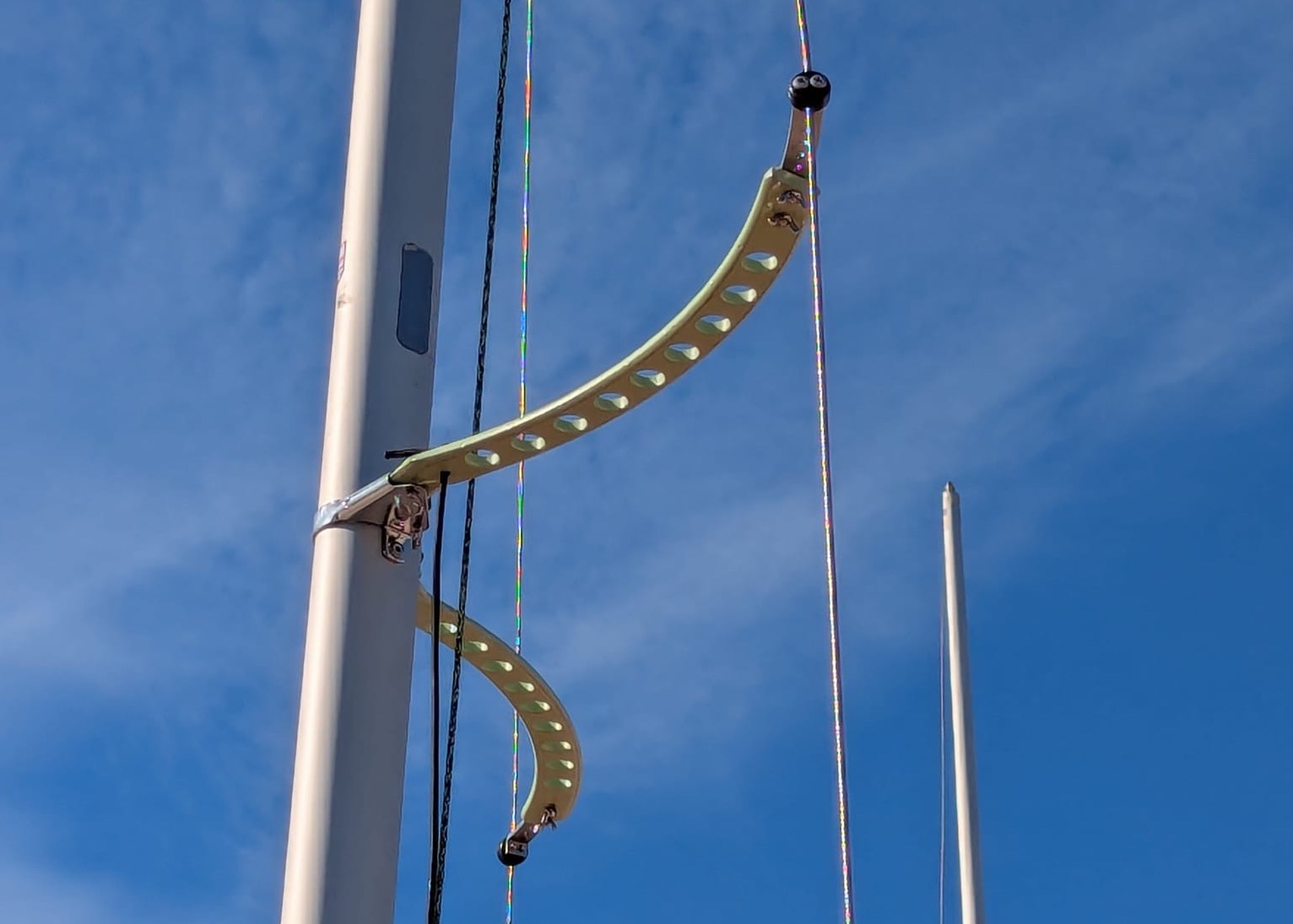

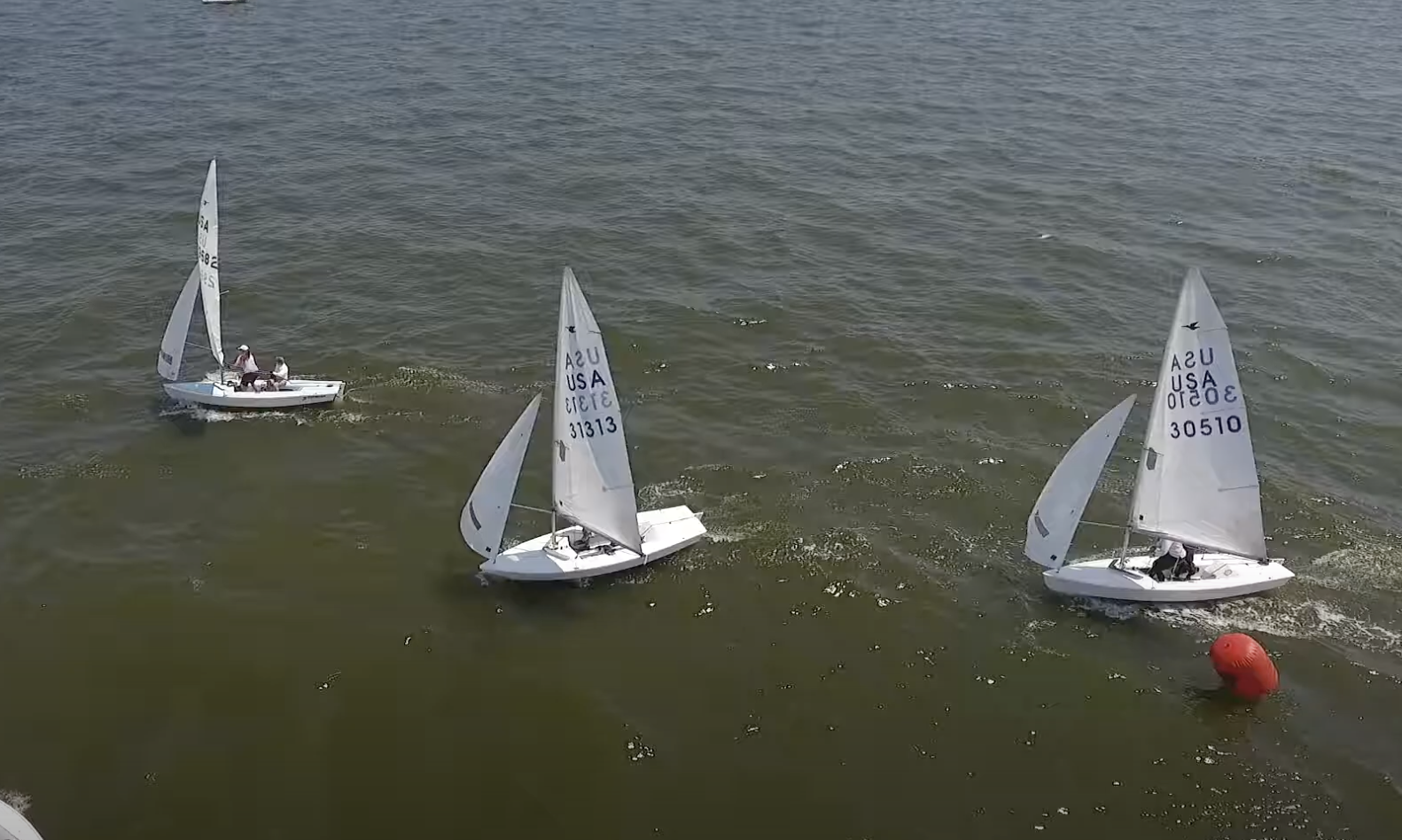
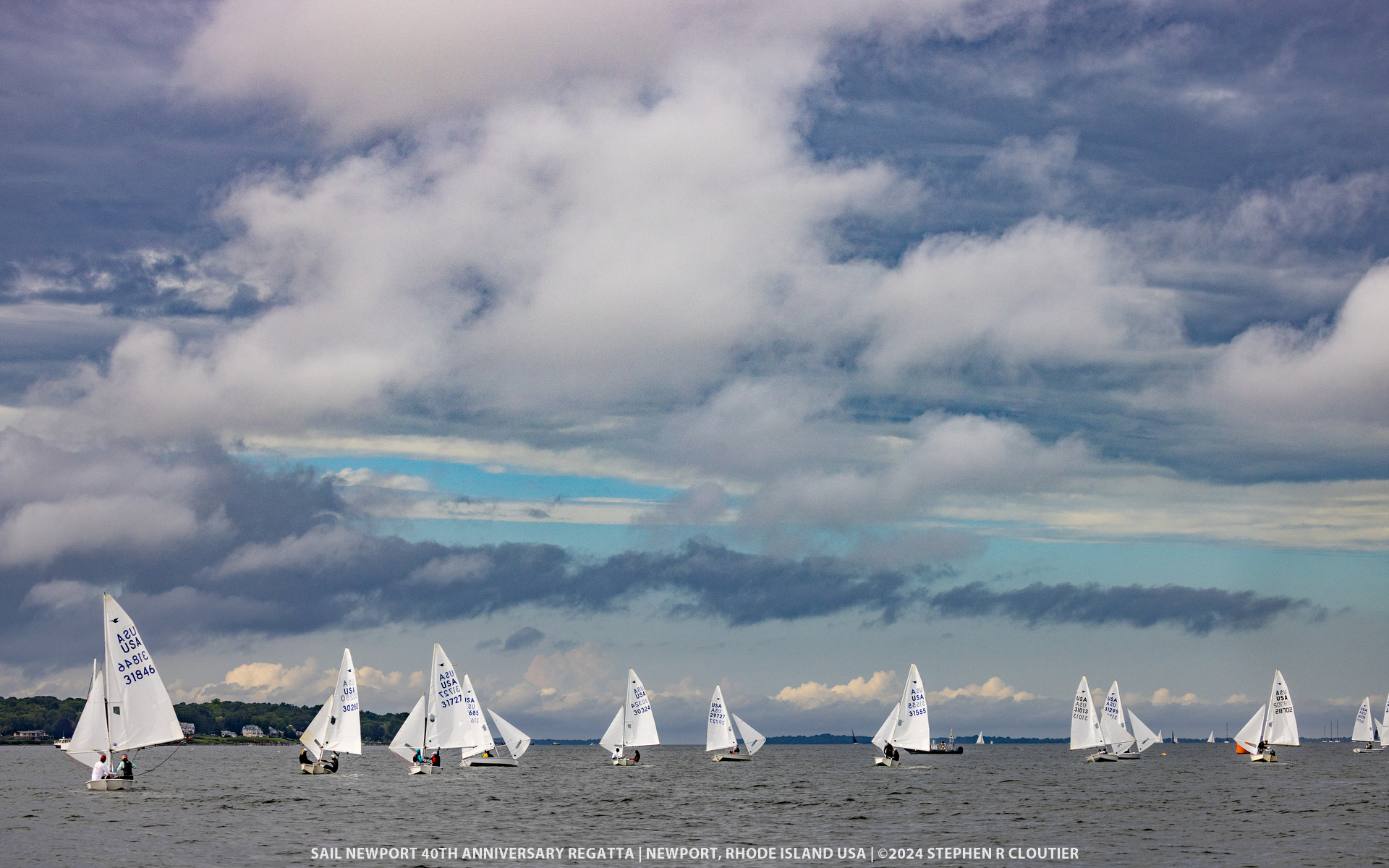

0 comments